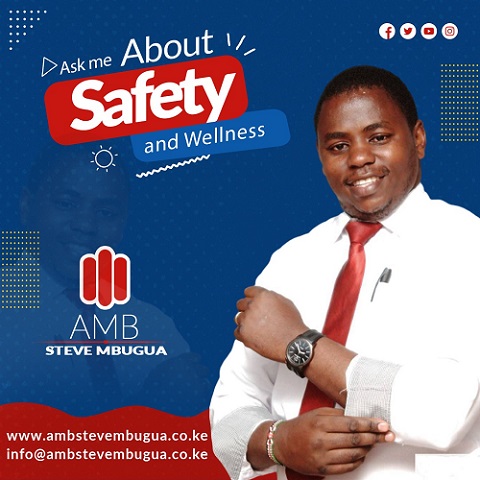Breakups can be one of the most emotionally painful experiences in life. They can leave us feeling lost, rejected, and uncertain about the future. However, with the right mindset, healing, and steps toward recovery, it’s possible to emerge stronger, wiser, and more self-assured.
As an Intentional Encourager, Founder and President of Africa Youth Rescue Initiative, and the author of books like Overcoming All Odds, Dare Not Quit, and Behind the Scenes, I want to guide you through a detailed process of dealing with a breakup in a healthy and empowering way. Below is a structured approach that covers every aspect of breakup recovery, giving you hope and a fresh perspective.
1. Understanding the Impact of a Breakup
Emotional Impact
A breakup often triggers a flood of emotions—sadness, anger, confusion, and even relief. It’s essential to allow yourself to feel these emotions and acknowledge their presence.
Psychological Impact
Breakups can shake our self-esteem and confidence, making us question our worth. This is why it’s important to recognize that breakups don’t define who you are or diminish your value.
Spiritual Impact
For those with faith, breakups may lead to spiritual questioning or feeling disconnected from God. Reaffirming your spiritual grounding can provide hope and healing during this time.
Common Reasons Why Relationships Break
- Lack of communication
- Infidelity or betrayal
- Incompatibility
- Unrealistic expectations
- Financial issues
- Emotional disconnection
- Lack of trust
- Jealousy or possessiveness
- Absence of shared goals
- Conflict over family or children
- Growing apart or personal changes
- Pressure from friends or family
- Lack of intimacy or affection
- Differences in values or beliefs
- Inability to resolve conflicts
- Mistrust or insecurity
- Controlling behaviors
- Addiction or substance abuse
- Work or life imbalance
- Stress from external circumstances
- Misaligned priorities
- Cultural or religious differences
- Excessive time apart or long-distance strain
- Health-related challenges
- Emotional or physical abuse
Understanding these reasons can give you clarity and insight into what went wrong, helping you reflect and learn from the experience.
Common Signs and Symptoms After a Breakup
- Feelings of sadness or depression
- Emotional numbness
- Loss of appetite or overeating
- Difficulty sleeping
- Frequent crying
- Overthinking and self-doubt
- Loneliness and isolation
- Difficulty concentrating
- Anger or resentment
- Feeling abandoned or rejected
- Questioning self-worth
- Disinterest in activities you once enjoyed
- Anxiety about the future
- Withdrawal from friends and family
- Avoiding places that remind you of the relationship
- Physical exhaustion or fatigue
- Mood swings
- Irritability or frustration
- Guilt or regret over past mistakes
- Loss of motivation
- Fear of being alone
- Constantly thinking about the ex
- Holding onto hope for reconciliation
- Compulsive checking of the ex’s social media
- Obsessing over “what could have been”
- Trouble forming new connections
- Comparing yourself to others
- Feeling inadequate or undeserving of love
- Distrusting new relationships
- Fantasizing about a new start or revenge
Consequences of Not Dealing with a Breakup Properly
- Prolonged emotional pain
- Difficulty trusting future partners
- Unresolved anger and bitterness
- Emotional baggage affecting future relationships
- Loss of self-worth
- Increased risk of depression
- Social withdrawal and isolation
- Fear of vulnerability or intimacy
- Physical health problems (e.g., stress-related)
- Poor self-care habits
- Developing unhealthy coping mechanisms (e.g., addiction)
- Negative impact on professional life
- Decreased productivity
- Risk of entering toxic relationships
- Lowered self-esteem
- Becoming overly guarded or defensive
- Diminished hope for future love
- Difficulty finding closure
- Detachment from social circles
- Spiritual disconnection
Ways to Deal with and Overcome a Breakup
- Allow Yourself to Grieve – Give yourself time to mourn the loss of the relationship.
- Accept the Reality – Acknowledge that the relationship has ended and avoid denying the truth.
- Seek Support from Friends or Family – Surround yourself with people who care about you.
- Talk to a Therapist or Counselor – A professional can provide guidance and healing strategies.
- Reconnect with Your Faith – Turn to God for comfort, wisdom, and strength during this challenging time.
- Journal Your Feelings – Writing down your thoughts can help you process your emotions.
- Focus on Self-Care – Prioritize your physical, emotional, and spiritual well-being.
- Exercise Regularly – Physical activity can help alleviate stress and improve your mood.
- Avoid Rushing into a New Relationship – Take time to heal before considering dating again.
- Unfollow or Block Your Ex on Social Media – This prevents unnecessary reminders that could reopen wounds.
- Engage in New Hobbies – Rediscover your interests or take up new ones.
- Practice Meditation or Prayer – Center your heart and mind through quiet time with God.
- Take Time to Reflect – Think about the lessons learned from the relationship.
- Set New Goals – Refocus your energy on your personal growth.
- Declutter Mementos – Remove items that may trigger emotional pain.
- Establish Boundaries – If you must interact with your ex, set clear limits to avoid further hurt.
- Change Your Routine – Introduce new habits to signify a fresh start.
- Seek Closure – Have a final conversation, if necessary, to put unresolved issues to rest.
- Forgive Yourself and Your Ex – Let go of any grudges to free your heart from resentment.
- Invest in Your Spiritual Growth – Deepen your relationship with God, trusting Him for your future.
- Limit Exposure to Triggers – Avoid places or events that might remind you of the breakup.
- Focus on Personal Development – Improve yourself emotionally, physically, and spiritually.
- Let Go of Unrealistic Expectations – Understand that no relationship is perfect.
- Stay Active in Your Community – Engage in activities that keep you connected with others.
- Speak Positively About the Future – Affirm that you will find healing and happiness again.
- Practice Gratitude – Focus on the blessings in your life rather than the loss.
- Consult Your Pastor or Faith Leader – Get spiritual guidance and encouragement from trusted leaders.
- Read Books on Personal Growth – Equip yourself with resources that promote healing and strength.
- Give Back to Others – Volunteering or helping those in need can shift your focus from the pain.
- Trust in God’s Plan – Believe that God is preparing you for something better ahead (Jeremiah 29:11).
Latest Trends in Dealing with Breakups
- Digital Detox – Taking time off social media to focus on real-life connections.
- Therapeutic Journaling – Writing about your journey for emotional healing.
- Faith-Based Counseling – Combining professional therapy with spiritual guidance.
- Group Therapy – Joining support groups for shared experiences and community support.
- Mindfulness Meditation – Using mindfulness practices to manage emotional stress.
- Fitness and Well-Being Programs – Engaging in physical activities to relieve emotional pain.
- Spiritual Retreats – Attending retreats focused on renewal and healing.
- Personal Development Coaching – Working with life coaches for self-improvement.
- Forgiveness Workshops – Participating in programs that focus on releasing emotional baggage.
- Grief Counseling – Specialized support that addresses the grief of a relationship loss.
- Self-Compassion Practices – Learning to be kinder to oneself through difficult times.
- Art Therapy – Expressing emotions through creative outlets like painting or music.
- Faith Communities – Finding support within church groups or spiritual organizations.
- Social Support Apps – Using apps designed to provide community and encouragement after breakups.
- Self-Help Podcasts – Listening to podcasts focused on emotional recovery and growth.
- Positive Psychology Techniques – Focusing on gratitude, happiness, and growth.
- Nature Therapy – Spending time in nature to facilitate emotional restoration.
- Breakup Bootcamps – Attending focused workshops on recovering from a breakup.
- Affirmation-Based Healing – Using daily affirmations to rebuild self-confidence.
- Virtual Counseling Sessions – Accessing online therapy for convenience and support.
Conclusion: A Call to Action
A breakup can feel like the end of the world, but it’s also the beginning of a new chapter. Trust that God has a plan for you, one that is filled with hope, healing, and fulfillment. As you navigate the pain, remember that you are not alone—God is with you every step of the way.
In this journey, don’t forget to seek more encouragement and healing resources. Read my books—Overcoming All Odds, Behind the Scenes, and Dare Not Quit—for stories of resilience and hope. Also, visit www.ambstevembugua.co.ke for more articles and insights on personal development, relationships, and faith. Reach out to me anytime for support.
READ MORE








 DAY FOR SAFETY AND HEALTH AT WORK
DAY FOR SAFETY AND HEALTH AT WORK










